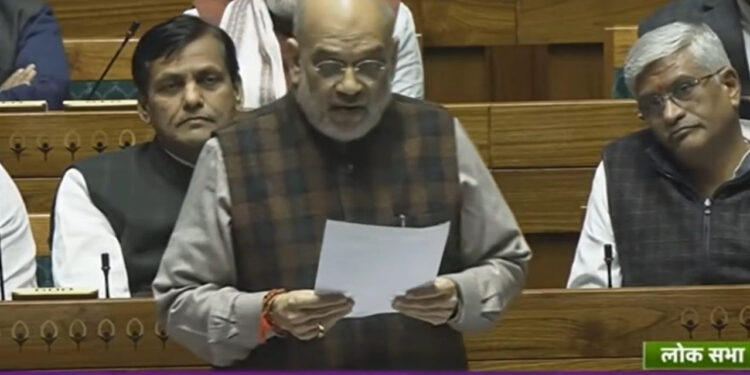Lagatar24 Desk
New Delhi: With the implementation of three new criminal laws today, Union Home Minister Amit Shah emphasized that justice will now replace punishment in India’s legal system. Leading the effort to reform the nation’s criminal laws, Mr. Shah announced that 77 years after gaining independence, India now has a fully “swadeshi” legal framework.
The new laws have introduced an “Indian soul” to the justice system, replacing many outdated sections from the British colonial era with provisions more relevant to contemporary society. “These reforms will benefit many groups,” Mr. Shah stated, highlighting significant changes in the legal approach to various crimes.
Addressing crimes against women, the new laws mandate that a survivor’s statement can be recorded at her home and introduced an online FIR facility to reduce social stigma. Additionally, mob lynching has now been defined in the legal system, a response to longstanding demands. The concept of treason has been replaced with a section on anti-national activities, ensuring that laws focus on threats to India’s unity and sovereignty rather than criticism of the government.
Mr. Shah assured that the new criminal laws would usher in a modern legal system, anticipating technological advancements for the next 50 years. “Videography during search and seizure operations is now mandatory, ensuring that no one can be falsely accused,” he said. Furthermore, e-statements from survivors of rape or sexual harassment are now legally valid.
The new laws emphasize a victim-centric approach. “Previously, families had to navigate the courts if someone was detained. Now, every police station must maintain a physical and electronic register of individuals in custody, reducing the need for habeas corpus pleas,” Mr. Shah explained. He also mentioned that searches and raids would now be videographed to maintain transparency.
Responding to criticisms from opposition leaders about the lack of debate on the new laws, Mr. Shah clarified that the Lok Sabha and Rajya Sabha extensively discussed the bills. “The Lok Sabha debated for nine hours and twenty-nine minutes with 34 members participating, while the Rajya Sabha debated for about seven hours with 40 members involved,” he said.
Mr. Shah refuted claims that the bills were introduced after the mass suspension of MPs, stating that the legislation was listed beforehand by the business advisory committee. He emphasized that the opposition’s non-participation was a choice, leading to their suspension due to disruptive activities.
He highlighted that extensive consultations were conducted with MPs, Chief Ministers, Supreme Court and high court judges, and bureaucrats before drafting the new laws. “I chaired 158 meetings to discuss the issue, and the bills were reviewed by a Standing Committee for three months with participation from all parties,” he said.
Appealing to the opposition, Mr. Shah urged cooperation for the sake of timely justice and self-respect for the 140 crore people of India. “My office is open to any suggestions,” he concluded.







